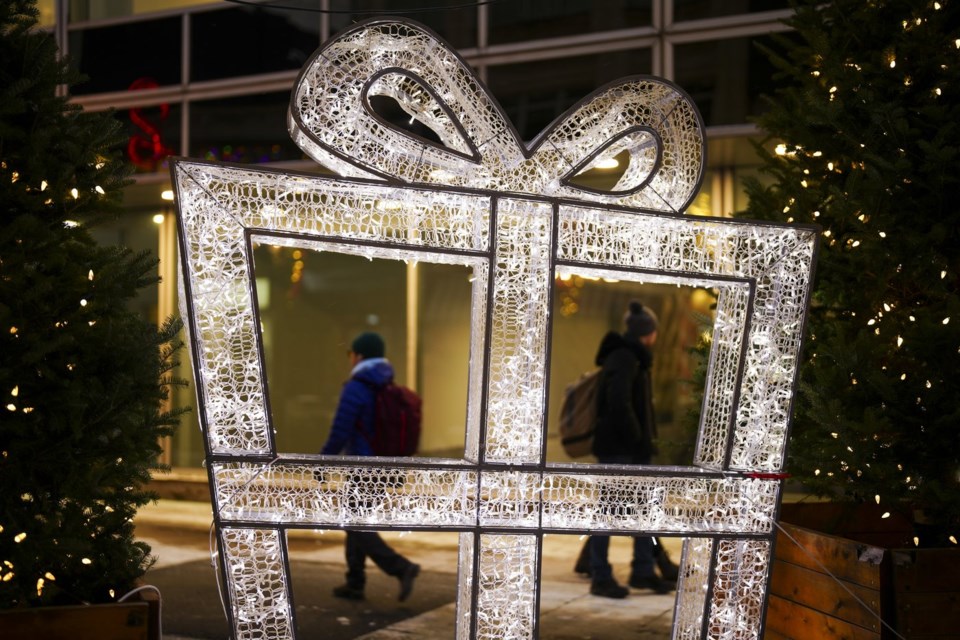TORONTO — A tax holiday introduced by the federal government is throwing a bit of a wrench in Andy Thompson's Christmas shopping plans.
The Fredericton mom of two was going to do most of her shopping on Black Friday, but now she has to weigh her options given that the temporary government sales tax break on some items isn't due to kick in until Dec. 14.
"If it's not quite a 15 per cent (discount) I might think of delaying it until the tax break takes effect," she said by phone Thursday. "But at the same time, with shipping and the Canada Post strike and that being uncertain, I'm not sure if I can wait."
With a 12-year-old daughter and nine-year-old son, only some of the gifts on Thompson's shopping list would be covered by the tax break anyway.
Items including children's toys and clothes, video games consoles, beer and wine, snacks and Christmas trees will be GST-exempt, but popular gifts like headphones and other tech will not.
Thompson is also in a province where the five per cent federal sales tax is combined with the provincial one into a 15 per cent harmonized sales tax (HST), so she's getting a little extra benefit from the temporary measure.
But as for the "holiday essentials" that are included on the list -- candy, prepared meals and the like -- she doesn't expect it to make a massive dent.
"These are things that aren't a huge part of our budget," Thompson said. "It's not like the HST is going to decide whether or not we get more or less. For the most part, it will be like, 'Oh, the grocery bill won't be quite as crazy as it has been.'"
Ian Lee, an associate professor at Carleton University's Sprott School of Business, said it's not surprising many 91Ô´´s feel this way.
"I really don't understand putting a tax holiday on low-value products like potato chips or junk food," he said. "These are small-ticket things."
He said very few people will be incentivized to "buy a prepared meal for $9.95 at Loblaws because there's no sales tax."
It's those bigger-ticket items where a tax holiday has an impact, he said.
Video game consoles, for example, can cost hundreds of dollars. But some parents say the math suggests buying on Black Friday will save them more money than waiting.
"It's just a straight, old-fashioned calculation: how much money are you saving if you buy now, versus from the Black Friday sale, versus how much are you saving if you wait and get the sale free of tax. So I'm sure consumers are smart, and they will make that calculation," Lee said.
For Lesley Taylor, the tax break is coming too late.
"By then, I will have already done all my Christmas shopping," said the 69-year-old from Oakville, Ont. "I'm going to buy my tree next week. I certainly can't wait until the 14th to do these things."
Taylor said she's also taking advantage of Black Friday sales, which will be long over by Dec. 14.
Prime Minister Justin Trudeau said the tax break, which is set to continue until mid-February, was meant to "help on the costs of everything as we approach the holidays, as we get into the new year."
But Taylor said "everything" is a bit of an overstatement.
"It's a very limited number of items, and not very healthy items," she noted. "When it comes to pastries and takeaway meals, beer, bottled water — which, our government is always talking about the environment — I think that doesn't provide the kind of relief that people need."
This report by The 91Ô´´ Press was first published Nov. 28, 2024.
Nicole Thompson, The 91Ô´´ Press



